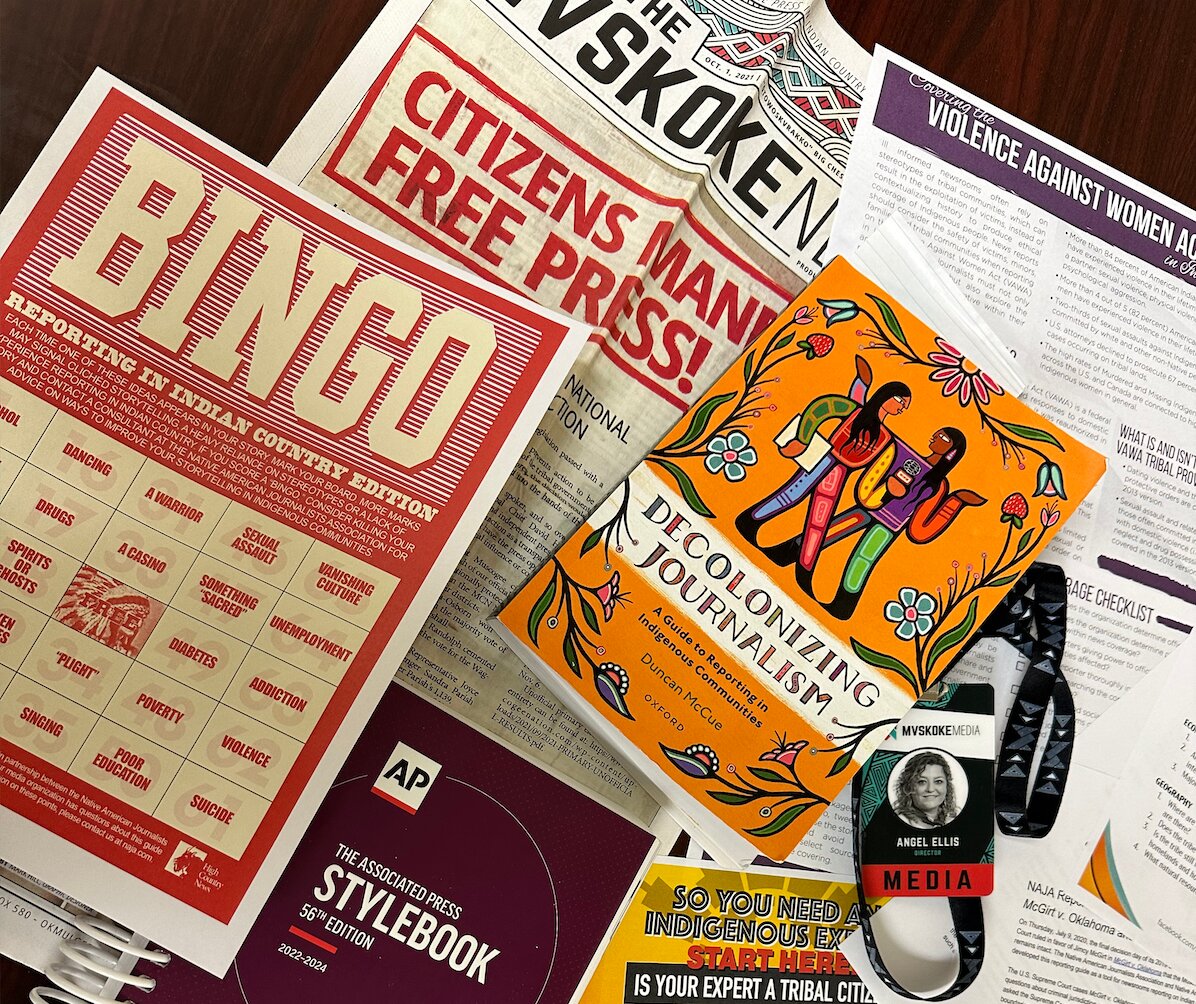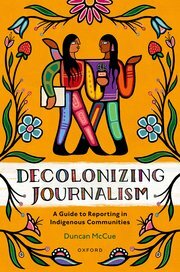
As the zeitgeist for Indigenous stories grows in all media platforms, news outlets across the country are faced with the question, “How can we ensure those crucial stories are captured and represented authentically in the archives?” The answer boils down to addressing the ethics of the journalism profession and overlaying that understanding with the Indigenous perspective.
Overcoming the bias by avoiding stereotypes
The average American has been trained to believe Native Americans only exist in historical context. Addressing this bias is one of the first barriers a news outlet will encounter when telling Indigenous stories. News outlets consistently attempt to cover Indigenous topics only to find that the community they tried to highlight hates the story.

Duncan McCue has written one of the best guides, “Decolonizing Journalism,” and has addressed what is known as the “four Ds.”
Is the story about drumming, dancing, drinking or death? If so, scrap it. It has been done. Continuing antiquated themes harm the Indigenous communities who cry out against this stigma.
The antidote to bias is to learn humbly from the source. A mainstream newsroom should abandon preconceived notions and approach Indigenous topics with a blank slate.
Stories are currency
The Indigenous Journalists Association (IJA), formerly the Native American Journalist Association, provides training. Graham Brewer, one of IJA's many qualified trainers, says, “Stories are currency.”
In this scenario, think beyond monetized content. An Indigenous person has a story, and it has value. If a person gives a valuable story to a news organization, they have entrusted that nest egg story. It is incumbent upon that storyteller to ask, “How will I handle this investment?” Don’t be Bernie Madoff.
Extracting vs. investment
Avoiding quick in-and-out interviews will save the news organization from embarrassing mistakes. Journalists are only ready to tackle a story from an Indigenous community if they have taken the time to attend community events. To foster the relationship, attend a community dinner, a ball game, a birthday celebration or a funeral before assuming the responsibility of telling a story.
The best practice to combat ignorance is immersion. Journalism in “Indian Country” comes with responsibility. Fostering a relationship with the subjects of stories will ultimately create better outcomes and lead to more stories.
Vetting sources
Without vetting, the story is doomed. Common catastrophes are the claims of Indigeneity followed by accusations of fake representation.
In the Indigenous community, outsiders feel lost when determining if a person is a Native American, and they are even further confused when they try to find the “Indigenous experts.”
Colonial ideology places more emphasis on race and fails to understand that a tribal nation's proper categorization is a political entity. In mainstream media, words like sovereignty and treaty aren’t fully understood.
Knowing a person’s relationship to the tribe and how that tribe exists in connection to the United States is vital. Studying IJA's newsroom guides, which cover many topics encountered in “Indian Country,” can help. The organization offers a variety of training, and membership is not exclusive to Indigenous journalists.
Hire and promote Indigenous journalists
An organization’s ability to tell Indigenous stories starts with the staff. It’s impossible to have someone representing more than 570 tribes. Each tribe has nuances. One person cannot be an expert on all tribes, but having Indigenous staff guiding the practice helps.
Indigenous people are naturally great storytellers but should never be regulated to only Indigenous topics. Indigenous journalism is hinged on the core tribal values, and those values often mirror journalism ethics, which apply to any subject. Those values make them incredibly intuitive journalists who can work any beat.
IJA is compiling a registry of Indigenous media professionals from fixers, photographers, writers and consultants. Before parachuting in, consider Indigenous staff, freelancers and fixers to help.
Trauma-informed reporting
The newsroom must learn to work ethically within communities that survive trauma. Dartcenter.org has resources for trauma-informed reporting.
Before interviewing a citizen of a tribe about their experience with domestic violence, ethical journalism practices demand resources like culturally informed therapeutic services are provided.
If a story is taken and nothing is provided, it extracts resources. Another important concept to consider is that some stories are difficult. The subject may only have the strength to tell it once. Get it right the first time to minimize harm. These practices should be in place regardless of cultural background.
When it goes wrong
When someone is harmed, how that organization reacts to the harm it causes will determine if reconciliation is possible. When people speak up about damaging portrayals in media, the best thing to do is listen. Trusting the media requires having a relationship with the audience. If the news organization wants to mend the relationship, the only appropriate response is apologizing for the harm caused and correcting the story and the behavior.
Indigenous stories are not closed off from the mainstream. A person need not be Indigenous to tell the story, but all Indigenous people should have agency in their shared stories. When the non-Indigenous newsrooms do the proper prep work, “Indian Country” benefits from sharing its stories. The archives hold the stories of America, which is only complete when the Indigenous story is included.
Angel Ellis is the director of Mvskoke Media. She serves as treasurer of the Indigenous Journalist Association and the Oklahoma Media Center. Ellis was the subject of the Sundance award-winning film “Bad Press.” She has trained some of the most influential media organizations in the world and advocates for press freedom in “Indian Country.”
Comments
No comments on this item Please log in to comment by clicking here